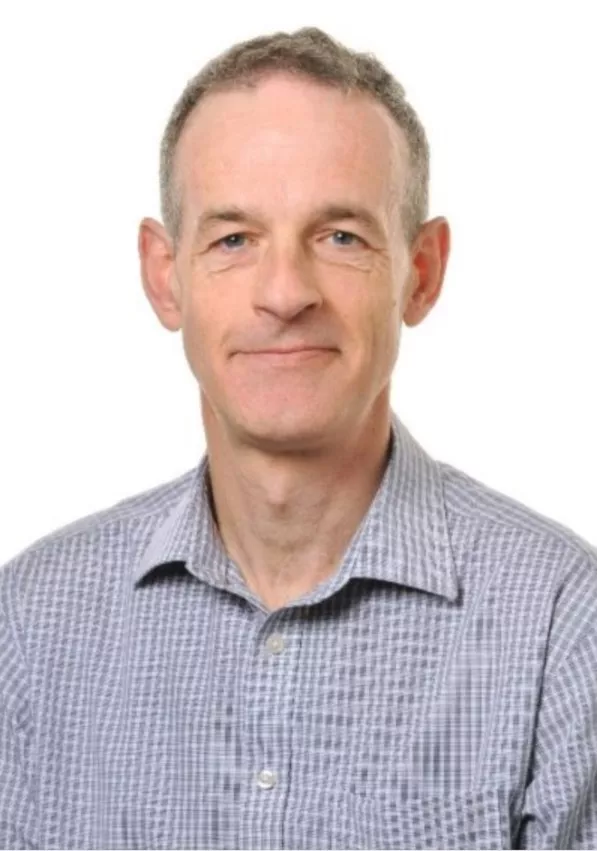
Political party conferences are in full swing across the UK. You’d be forgiven for wondering: when has a party conference - or politics more broadly - ever truly impacted paediatrics and child health? Fair question. But over the course of our careers, many of us have witnessed meaningful change driven from the centre.
The policy to introduce HPV vaccination to teenagers has had a profound beneficial effect; there is a cohort of women who are now essentially free from cervical cancer. The older among us will remember the workplace smoking bans, which brought huge benefits to children and unborn babies. The RSV vaccine and ban on disposable vapes (both College wins) will hopefully have big impact too. So policy can have profound impact.
Looking ahead, 2025-26 may well be remembered as a key time in health politics across the UK, and perhaps internationally.
The Westminster Labour government have talked the talk of raising the healthiest generation ever, and now need to walk the walk. This week our VP for Policy, Mike McKean and I have been calling for real action at their party conference, in meetings with MPs, events jointly with RCP, the GMC, BMA, King’s Fund and Barnardo’s.
And ahead of elections in Holyrood and the Welsh Senedd next May and Northern Ireland the following year, politicians and the public will be watching closely what happens in Westminster. RCPCH is working steadily to ensure child health and paediatrics are firmly embedded in the national narrative across all four nations getting local and national decision-makers to “think child”.
Sadly, we know that child health outcomes are poor across the UK. Unhealthy children don’t undergo an epiphany on their 18th birthday and suddenly become healthy adults ready to hit the workforce, become parents and contribute to society.
Society needs to be involved in the long haul to improve child health, and we know that RCPCH and paediatricians are key. Our Child Health Workforce Alliance is there to help coordinate across child health. Our workforce also needs to work differently and our Facing the Future standards will be published next year, to describe this.
But if politicians don’t act now, we risk another decade of missed chances and widening gaps. That’s why we will be publishing our State of Child Health next year, shining a light on health inequalities and the impact of political decision making. This is our moment to demand better for children and the workforce, and our college will lead the way. We may not get a better chance to make a difference.
Condemning antisemitic violence
To our Jewish members, may your Yom Kippur have brought reflection and renewal. Wishing you a healthy new year. I am appalled at the deeply saddening act of antisemitic violence in Manchester on the holiest of days last week, my thoughts and deepest condolences are with you and your communities at this incredibly difficult time.
#WDYCD4U – Insights from members after completing training
Our College surveys members who have recently completed paediatric training in the UK. This information helps us better understand their career paths and experiences of that (often tricky) transition to the consultant role.
Many thanks to everyone who completed this survey. Your responses have provided valuable insights into how you choose to train and work and have highlighted the need to map training posts to future service needs by region. You can explore these findings in our report.
To support this transition, we have a resource on preparing for a consultant role, with case studies, personal reflections and practical recommendations. We also know from the survey and other data that more of us are working less than full time. Our page on flexible working offers data going back to 2015, outlines relevant UK legislation and NHS guidance and shares real-life experiences.
Introducing the 5th edition of our Facing the Future standards for emergency care
Last week we were pleased to launch the revised standards for children and young people in urgent and emergency care. Originally published right back in 1999, these standards are an established feature of the paediatric emergency care landscape. Services for children and young people have not recovered as well as adult services post-COVID, and the majority of funding remains focused on adult care, leaving paediatric emergency services consistently under-resourced.
Children must be seen by the right people, at the right time, and in the right setting. The latest standards – developed by a wide group of multidisciplinary child health experts - reflect key developments in paediatric emergency care over the past seven years. The document also encourages collective working and integration to make our emergency departments work better for all our children, so that we can face the challenges of both the present and the future.
I am very grateful to all of the members who have volunteered their time over the past two years to make this revision possible. Particular thanks go to the Chair of our Intercollegiate Committee for Emergency Care Dr Scott Hendry. Download the revised standards alongside an executive summary and a document letting you know what has changed in this update.
COVID 19 inquiry turns attention to children and young people
You might have seen from the press that the COVID 19 inquiry module 8 focus is on children. We applied successfully to be core participants for this module and next week I will be providing oral evidence on behalf of the College. I will raise concerns about impact on our staff (including redeployment adult services) and on children (including educational, developmental, safeguarding and social aspects). We must make sure that in any future pandemic planning child health is specifically considered, they cannot lose out again. You can read our opening statement here as well as other speakers on their website.
A new 10 Year Plan for Workforce in England
The Department of Health and Social Care have launched a call for evidence for NHS partners and stakeholders to support the development of the 10 Year Workforce Plan. The previous long-term workforce plan failed to adequately recognise the unique needs of children and the pressures faced across the entire child health workforce. This call for evidence is an opportunity to right this wrong.
We look forward to engaging in this consultation and encourage you as members to also consider responding as an individual to ensure the voice of paediatricians is prominent in this consultation. We will also work as part of the new Child Health Workforce Alliance and the wider sector to make sure the collective voice of child health professionals is heard.
Devolved nations update
It's been a busy few weeks in the devolved nations for our Nations Officers, committees and staff alike. Jumping straight into work, Dr Tom Bourke, Officer for Ireland presented at the NI launch of Healthy Child, Healthy Future long term public child promotion framework following consultation at an event hosted by the Health Minister and NI Deputy Medical Officer. Dr Bourke will support implementation via NI Executive implementation group which we’re delighted to see given this brings NI into line with our Child Health for All 5th Edition. Our Committee member, Dr Julie-Ann Maney spoke at a cross-UK parliamentary event on the need to ensure an amendment to the Justice Bill in NI granting Equal Protection. Following on from the party conference theme, Dr Bourke and staff attended both the Democratic Unionist Party Conference (co-lead Government Party) and the Social Democratic & Labour Party (Opposition) raising the profile of the need to improve the service models and funding in NI with follow meetings in the diary.
Further on the much more fast approaching 2026 Holyrood Elections in Scotland – our Team launch our manifesto, based on Scottish member feedback on 7 October. Please keep an eye on our comms channels as we publish this key guiding document which makes recommendation for the next Scottish Government. Moreover, watch our Scottish Officer speak in support of child health at the first party conference of the season – SNP on 11 October.
In case you missed it...
Digital Paediatrics 2025
We’re less than a month away from our first ever Digital Paediatrics Conference, a hybrid event taking place in Birmingham and online on 5 November. We'll explore how digital innovation is transforming paediatric care to harness emerging technologies to drive better outcomes for children’s health. We’ll hear directly from world leading technology companies, NHS digital leaders, frontline research teams and innovative digital start-ups, from Umang Patel, Chief Clinical Information Officer Microsoft UK, to Devin Singh, SickKids Canada.
It promises to be an inspiring day innovation, cutting-edge insights, and meaningful networking. You can find out more and book your tickets on our website.
SAS Week
It's SAS week! As part of our celebration, we’re hosting an SAS Careers Webinar designed to inspire, inform, and empower your next career move. So, whether you're exploring new opportunities or wanting to learn more about SAS this session will offer valuable insights into career pathway and opportunities.
Wednesday 8 October | 18:00 – 18:45 | Online (MS Teams)
Best wishes all round,
Steve
This message was emailed to all RCPCH members who are opted in to receive College updates / professional updates. You can update your contact preferences at any time - log in to your RCPCH online account, go to My account | Your contact preferences, then make sure you've ticked College updates / professional updates.








